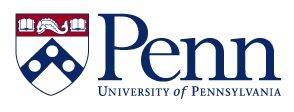Exchange to Change: Three Big Ideas that Came Back from Chicago
In the second installment of the Economy League’s Exchange to Change series, Josh Sevin reviews ideas that were brought back from the first Leadership Exchange trip to Chicago in 2005 and implemented at home.

When we explain to people what happens on the Greater Philadelphia Leadership Exchange, we stress three outcomes: 1) stealing good ideas from other regions; 2) gaining new perspectives on our own region’s strengths and challenges; and 3) strengthening relationships among our region’s business, nonprofit, and public sector leaders.
While each Leadership Exchange has resulted in best practices from elsewhere getting implemented in Greater Philadelphia, the inaugural trip to Chicago ten years ago proved particularly ripe for idea-stealing. The combination of hearing from peers who have gotten big things done in another metro, mulling it over between sessions and over beers, and keeping the discussion going with potential co-conspirators back home … it’s a great recipe for adapting and implementing innovative ideas in Greater Philadelphia.
Here are three of the ideas and efforts that the 72 participants at the first Leadership Exchange to Chicago learned about that ended up finding their way back to our region:
Bringing Together Local Elected Officials for a Stronger Metro
For a region every bit as large and complex as Philadelphia, our delegation was impressed by the extent of regional collaboration among Chicagoland’s leaders to address key metro opportunities and challenges. We learned of several examples, but the one that stood out the most was the Metropolitan Mayors Caucus – a forum for chief local elected officials from Northeast Illinois’ 273 cities, towns, and villages to work on shared priorities. Formed in 1997 with leadership from Chicago Mayor Richard Daley, the Caucus helped establish working relationships among mayors across Chicagoland where there had been none and achieved quick wins for the region around air quality and transportation safety.
Informed by what he saw in Chicago on the Leadership Exchange, two years later on the campaign trail mayoral candidate Michael Nutter frequently talked about the need for our region’s elected officials to come together around common causes. Once in office, Mayor Nutter created the Metropolitan Caucus, a bipartisan body of elected officials from the five counties of southeastern Pennsylvania committed to collaborating on key issues that cut across county lines. Early Metro Caucus victories have included securing federal funds for regional energy efficiency improvements, advocacy for increased transportation funding, and an analysis of southeastern Pennsylvania’s impact on the Commonwealth’s budget.
Reimagining Downtown Public Space
Chicago’s Millennium Park opened just one year before our fall 2005 visit, and it was – and remains – dazzling. As our group delved into the story of how the $500 million, 25-acre project came together and the creative public-private partnerships that made it happen, no one was listening more closely than Center City District President & CEO Paul Levy. Touring the breathtaking combination of green space and public art in the center of downtown Chicago that already was drawing millions of visitors mere months into its existence raised jealous murmurs of “why can’t we do this in Philadelphia?”
The visit helped build momentum around Levy’s nascent concept of transforming Dilworth Plaza on the western edge of City Hall into the modern Dilworth Park that opened last fall. It showed key regional leaders first-hand the transformative potential and significant economic benefit of such a project. While Dilworth Park’s redesign was a long time in the making and drew from many examples, the public-private partnership model for development and operations and its signature design elements – such as the interactive fountain and video screens – clearly drew from the Millennium Park story.
The Power of a Shared Regional Strategy
In the tradition of famed Chicago planner Daniel Burnham and his plea to “create no small plans,” our 2005 delegation learned about how Chicago’s regional business and civic leadership rallied around Metropolis 2020, a big-picture vision for ensuring Chicagoland’s competitiveness in the 21st century. What was different about this effort compared to other glossy regional reports that briefly excite and then fade away was a sustained commitment to focus on the Metropolis 2020 agenda and strategically advance key elements of it. Following the Metropolis 2020 report’s release in 1999, the Commercial Club of Chicago – a prominent, century-old business and civic leadership group – took ownership of ensuring key pieces were implemented, including the merger of two regional planning agencies, increasing investments in quality pre-k, and addressing affordable housing.
The lessons from Chicago’s Metropolis 2020 effort – both positive and cautionary – strongly influenced the Economy League’s design and launch of World Class Greater Philadelphia in 2009. Informed by Metropolis 2020’s successes, we invested in extensive up-front leadership engagement in developing the World Class Global Positioning Strategies released in 2013 and made a sustained organizational commitment to align our ongoing work around this shared agenda, resulting in impact campaigns around early learning, exports, and transportation funding.
Steal This Idea!
The inaugural Leadership Exchange trip to Chicago was just the start of what has become a strong tradition of GPLEX participants learning about best practices elsewhere and then adapting them to our region. We have seen the same dynamic on subsequent learning visits to Atlanta, the Bay Area, Toronto, and Boston, as participants have transplanted innovative ideas and programs focused on minority business development, regional branding, welcoming immigrants and newcomers, sustainability, community development, and the innovation economy – among many others – to Greater Philadelphia.
So, with each Leadership Exchange, we at the Economy League get excited and ask ourselves, “What are we going to bring home this time?”
Explore the full Exchange to Change series
Apply for the 2016 Greater Philadelphia Leadership Exchange >>

The Exchange to Change series is made possible through the generous support of the University of Pennsylvania.